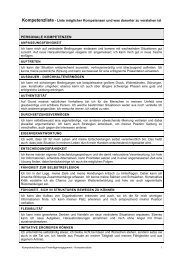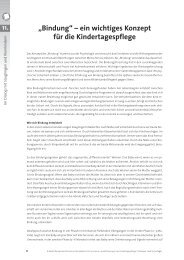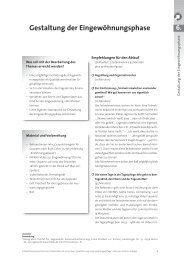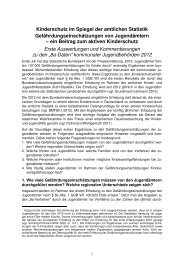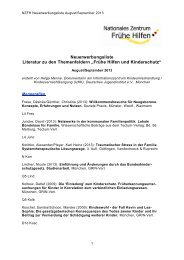download - Deutsches Jugendinstitut e.V.
download - Deutsches Jugendinstitut e.V.
download - Deutsches Jugendinstitut e.V.
You also want an ePaper? Increase the reach of your titles
YUMPU automatically turns print PDFs into web optimized ePapers that Google loves.
structures and also certain institutional structures actually still have to be established and<br />
developed. EU support programmes for the new member states can provide<br />
encouragement. Transversal strategies which are characteristic of the West European<br />
programmes presented can only develop in historically established institutional structures.<br />
Additionally important for a cross-national learning process are the consideration of<br />
thematic starting points and the structure of the programmes presented and discussed here<br />
for the formation of relevant conclusions for further work in one’s own country. Socioenvironmental<br />
strategies and/or strategies targeting specific urban districts are not suitable<br />
for problem complexes such as the integration of non-settled population groups<br />
(Roma/Sinti; travellers) and are also just as ineffective in cases where spatial segregation<br />
processes have not yet developed, as appears to be frequently the case in Eastern European<br />
EU member states.<br />
Conclusion<br />
Despite the frequently widely varying framework conditions of social welfare and<br />
programmatic and institutional differences, several fundamental conclusions can be<br />
formulated which appear to be essential for European and national support policies for<br />
children and young persons from disadvantaged neighbourhoods following the analysis of<br />
the strategies and programmes presented, the position papers and the recommendations<br />
for action from the individual working groups:<br />
Central results and conclusions for the development and<br />
implementation of national strategies and programmes targeting<br />
disadvantaged children and young persons<br />
1. The EU member states can only develop long-term and successful<br />
programmes for the improvement of the situation of young persons in<br />
disadvantaged neighbourhoods on the basis of regional and local strategies<br />
embedded in national strategies.<br />
Measures and successful programmes for the improvement of the situation of<br />
young persons in disadvantaged neighbourhoods on regional and local levels<br />
require the framework of a national strategy, i.e. these measures must be elements<br />
of active national child and youth policies.<br />
The embedding of all regional and local measures in national strategies lends these<br />
measures a common permanent and long-term character: they will serve uniform<br />
national aims and the success of their implementation will be controlled from the<br />
aspect of having achieved their target objectives. Through the national framework,<br />
the various measures and programmes can be set up and implemented on a local<br />
and regional level according to consistent and standardised quality standards.<br />
Additionally, a uniform national reporting system on a long-term basis should<br />
provide an overview of the situation and development in socially disadvantaged<br />
areas and the integration needs of young people in these areas, providing a unified<br />
evaluation.<br />
119





